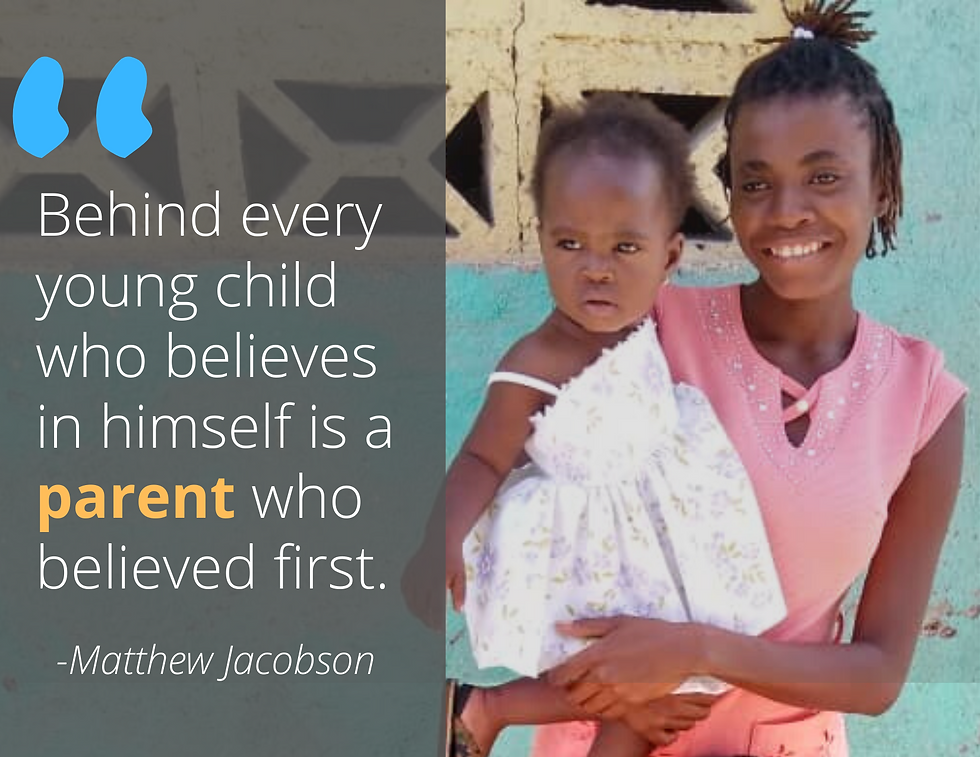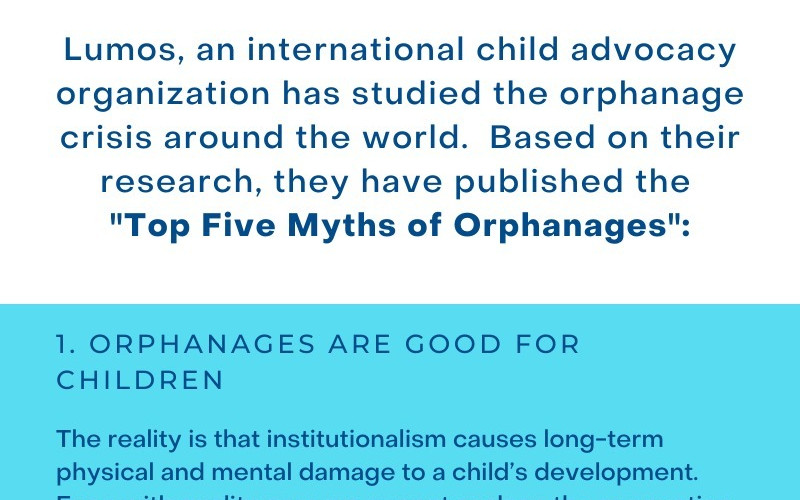Family Preservation
- Overture International
- Sep 23, 2020
- 3 min read
Updated: Feb 22, 2023
Since our last letter to supporters, we have received several questions asking about the children previously living at ESPWA. Most commonly asked: "If ESPWA is no longer an orphanage, what happened to the orphans?"

ESPWA is no longer an orphanage, however, we do have a crisis care program for children that need temporary residency. Children in our crisis care program are placed at ESPWA by IBESR, the Haitian child welfare agency and in a collaborative effort, we work to reunify the child with their family or an alternative family placement is chosen.
That said, most of the children in Haitian orphanages have at least one living parent. This was also true at ESPWA where nearly all of the children had a parent or close relative who were willing to care for them.
Poverty places families in crisis situations where they see little hope, leading parents to relinquish their children to orphanages that promise to provide them with an education, nutrition, clothing, shelter, and medical care.
The reality is that orphanages generally never fulfill this promise. Children spending an extensive time in orphanages experience a variety of developmental deficiencies and often suffer from abandonment issues and trauma during their stay. Many children are at risk of being abused or a victim of trafficking by orphanage owners, staff, or visitors.
The best and only proven way to enable parents to provide for their children is to facilitate economic opportunities that offer sustainable, predictable financial resources for them and their communities.

So, in the best interest of the children, their families and the community, the children who were formerly housed in the orphanage have been reunited with their families. Overture and ESPWA are working with these families, who are eager and willing to care for their children, to ensure they have access to the resources they need to effectively care for their children, and provide a hope and a future for them and the community.
We understand that there may be some
concern about the decision to move the children from the orphanage back to their families, but there are many
misconceptions about orphanages,
that if most people understood, they would fully support the family-based model of caring for children in poverty. We’ve included some information from Lumos that will provide additional information about the shortcomings of the orphanage model.
Our assessments of the children and their families living at ESPWA reveal the true nature of the situation facing most families there:

the children have parents or close living relatives who are eager and willing to care for them
they live in rural communities that lack power, clean water, schools or medical care
they live in unsatisfactory housing conditions
they have income that is insufficient to provide nutrition
they have minimal education
they lack transportation
they lack the ability to pay for their children’s education or transport them to a center
they lack services that support families and their children. IBESR, the Haitian child welfare agency, has limited staff and resources and is unable to provide support to families.
With this in mind, we believe strongly that the children who were housed at the orphanage and have been returned to their family are in a much better position to experience a safer, more secure and sustainable future.
All this is only possible with the support of people like you who have a heart to help these children, their families and their communities gain the tools, experience and resources they need to overcome the generational poverty in Haiti.
Join us and learn more about why
ESPWA is no longer an orphanage
JOIN US for a virtual information session on how we are helping more children, families, and communities than ever before by focusing on family reunification and preservation.








Commentaires